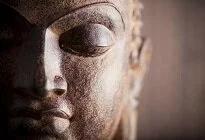
Top Spots in Sri Lanka that Explore the Country&39;s Heritage
By Flora Cox
September 22, 2014
Travelling to Sri Lanka can be your unique way to get acquainted with the rich Sri Lankan heritage and culture apparent everywhere on the island. The island's impressive 3000-year-old history leaves behind numerous traces of this past thriving in beautiful spots. Here are the top spots in Sri Lanka that are your best bets for exploring the dynamic heritage of the island.... Continue Reading